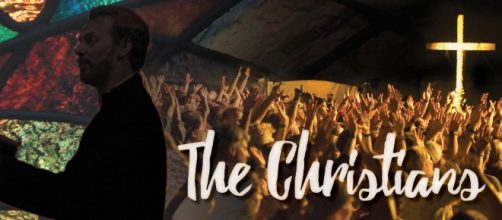It was definitely an evening where I did not regret starting a discussion on Facebook about a matter that is of interest for overseas followers of American politics. The presence and role of Christian denominations in the United States is long-standing, but during the recent presidential campaign, its open support for Donald Trump raised many questions about the consistency of the biblical message with the public and private behavior of the President-elect. Spice was then added by the appearance and disappearance of trolls in a number of discussions.
Politics and the Bible
The discussion began with a post where a passionate Trump supporter “shouted” a message about Hillary Clinton in reply to an article about the President-elect. I answered by asking if there was any inconsistency between the professed Christianity of many of his followers and their political support for the new POTUS. The expected comments came quickly.
Interestingly the discussion took the direction of “sinning” and “forgiveness” and that it was not up to humans to judge the man or the President, but that God would be his ultimate judge. What made the direction particularly interesting was the obvious fact that this “forgiveness” applied only to Trump and that the same people replied to any mention of Hillary Clinton with undeniable expressions of condemnation and accusations.
This direction was in line with the public debate during the presidential campaign, but it was also obvious that there were members of these denominations that were just as passionately opposed to the incoming President. In fact, the most ardent and forceful exchanges were those between those who were openly opposed to Trump and those who were prepared to accept unquestioningly any aspect of his behavior that was subject to public criticism as we have seen over the last year and a half.
Added to this were the comments by some that the preaching of the powerful pastors attached to the media groups was to blame for the new directions of the various denominations. There is no simple and single answer to the question I raised at the beginning, but the discussion showed that the American electorate is much more varied and complicated than even many experienced political experts imagined before November 8th, 2016.
These differences will undoubtedly be a rich source of material for sociologists and political scientists of the future on what will certainly be an unusual presidency.
Trolls or ardent Christians?
Last night’s discussion was a follow up to others on the previous two evenings which highlighted another theme from the presidential campaign, the presence of trolls on the net. In these discussions, some of the participants were particularly disruptive and clearly aimed at diverting the course of the discussions away from the incoming administration. After a while, I looked up the pages of these contributors and found very little personal information on the persons, so I named these participants as trolls.
The fascinating reply to my comments was that they quickly disappeared from the pages involved.
Even more interesting was the query made to me a few minutes later by another contributor of how I knew they were trolls. I answered with an explanation, to which he made a quick reply before he too canceled his presence in the conversation.
This left me in no doubt that the presence of trolls was not an urban legend, but an active ingredient of modern political debate and are potentially dangerous as we now see in the accusations of Russian interference in the election. This morning I found one of the participants from last night’s exchange had been busy on a number of threads and his page too was threadbare.
Another troll, or simply an ardent Trump supporter?
Politics had always been complicated and rarely transparent, now citizens must learn to read the discussions because we now have many more elements to consider than simply the political agenda of the candidates.

